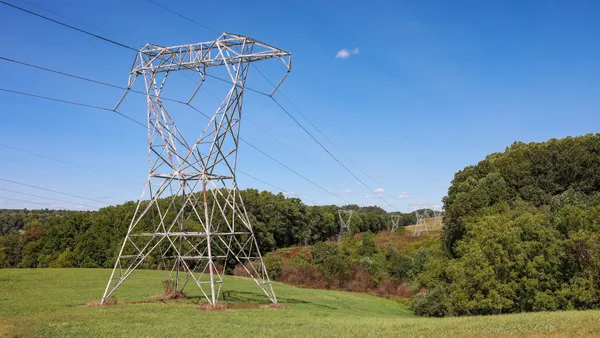Dive Brief:
-
Public Service Co. of New Mexico on Monday filed an application with state regulators requesting approval for the utility’s parent company, TXNM Energy, to be acquired by Blackstone Infrastructure, one of the largest private equity firms in the world. Texas-New Mexico Power, also owned by TXNM, filed a similar application with utility regulators in Texas.
-
Officials at each utility said the $11.5 billion deal, first announced in May, would strengthen their financial ability to navigate growing demand and the energy transition. If approved, PNM told regulators the deal would provide $175 million in New Mexico customer benefits, including a $105 million rate credit paid over four years that will lower the average residential customer bill by 3.5%. Texas customers would see $35 million in rate credits, along with another $15 million in other benefits.
-
Critics warned of potential rate increases that might negate the credit, however. Blackstone “has a long track record of putting profits above people,” Mariel Nanasi, executive director of New Energy Economy, said in a statement.
Dive Insight:
For the second time in five years, New Mexico’s largest utility is the target of an acquisition.
In 2020, Avangrid proposed buying PNM’s parent company — then known as PNM Resources — for $8.3 billion. New Mexico regulators rejected the deal in 2021 over concerns the merger would raise electricity prices.
PNM Resources changed its name to TXNM Energy last year, to reflect its growing Texas operations. PNM serves serves almost 550,000 customers in New Mexico, while Texas-New Mexico Power serves more than 280,000. Both utilities are seeing significant demand increases.
PNM President and CEO Don Tarry said the benefits outlined in its New Mexico Public Regulation Commission filing are “unprecedented.”
“The energy landscape is changing, and New Mexico is at a critical point in time,” Tarry said in a statement. The utility is working to meet targets set by New Mexico's Energy Transition Act, including delivering 100% carbon-free energy by 2040.
In testimony included in the company’s PRC filing, Tarry said PNM “does not have the size or market presence to take full advantage of opportunities that are developing regionally and nationally for new loads and for transmission development that can support customer growth and participation in regional markets, which will provide benefits to existing customers.”
“The increased equity financing requirements are more challenging for smaller utilities,” he said. While TXNM could likely raise the capital for PNM’s utility operations without Blackstone or a similar partner, “doing so would not be practical or an ideal business model for the long-term and would not maximize benefits for customers,” he said.
Blackstone officials said the firm has a long-term “patient capital” approach to investing and wants to ensure its companies “have the resources they need to flourish.”
“This is exactly the opportunity we see in PNM as it works to maximize New Mexico’s unique potential to serve growing energy demands with carbon-free energy,” Sean Klimczak, global head of Blackstone Infrastructure, said in a statement.
In a separate statement, Klimczak noted “we look forward to utilizing our long-term investment commitments to support TNMP as they continue on this path of high-demand growth across Texas.”
But customer advocates are lining up to oppose the deal. New Energy Economy and the Center for Biological Diversity each announced they would intervene in New Mexico.
“The largest private equity firm in the world owning New Mexico’s largest public utility might make Blackstone’s financial dreams come true — but it will cause rate shock for New Mexicans,” NEE’s Nanasi said in a statement. “They want to own and gold-plate the grid to benefit private companies at PNM customer expense.”
Blackstone’s New Mexico rate credit “sounds like a lot but comes out to approximately $3.51 a month for the average residential ratepayer, and this includes NO rate freeze, a standard benefit in an acquisition of this magnitude,” NEE said in its statement. “Without a rate freeze, the rate credits offered are highly likely to prove illusory.”
“Public utilities are supposed to serve the people, not pad the pockets of Wall Street giants,” Lavran Johnson, an Albuquerque-based attorney at the Center for Biological Diversity, said in a statement. “This proposed merger is absolutely not in New Mexico's interest and we’ll fight it tooth and nail.”














